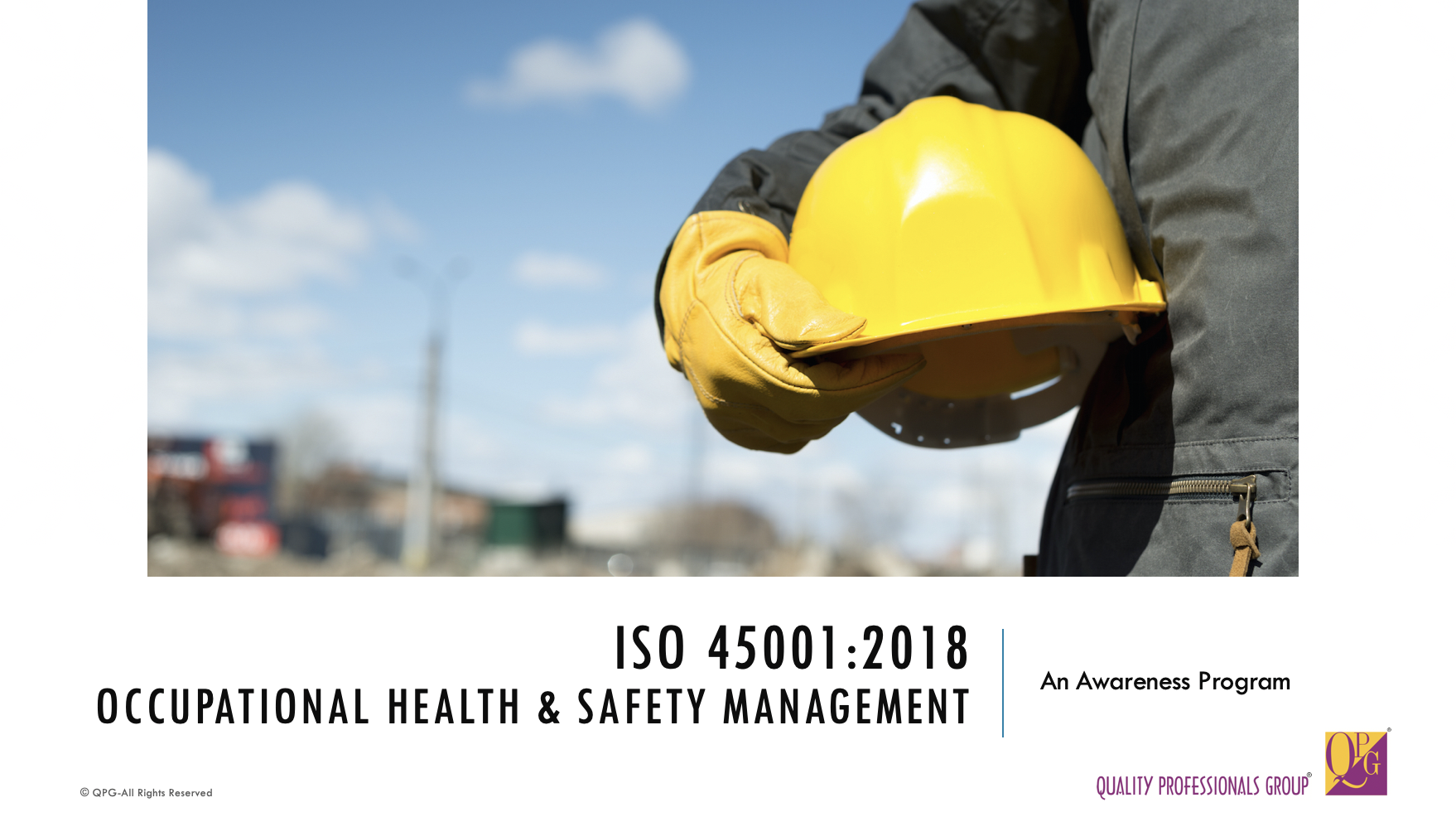Management Systems Auditor’s Training PPT (with Tutor Notes & Audit Forms)
A Training Program Based on ISO 19011:2018 for Management System Audits
(For Quality, Environment, OH&S, Information Security, Automotive Quality and other Management System Standards)
This wonderful training resource consists of 121 Microsoft PowerPoint slides with tutor notes that can be used as training material for Internal & External auditors for various management system standards. The contents of this program can also be used to train personnel to take up other auditing roles such as an Audit Program Manager or an Audit Team Leader for the management systems of organizations.
The guidelines on auditing given in this presentation are based on an ISO standard on this subject, i.e. ISO 19011:2018.
$99.97 $149.97
Management Systems Auditor’s Training (With Notes & Forms)
Document Benefits
- Generates a thorough understanding on the concept of management system audits
- Provides detailed guidelines on auditing process right from planning, to conducting the audit and report preparation
- Describes who can be a good auditor in terms of their knowledge, skills & behavior
A Training Program Based on ISO 19011:2018 for Management System Audits
(For Quality, Environment, OH&S, Information Security, Automotive Quality and other Management System Standards)
This wonderful training resource consists of 121 Microsoft PowerPoint slides with tutor notes that can be used as training material for Internal & External auditors for various management system standards. The contents of this program can also be used to train personnel to take up other auditing roles such as an Audit Program Manager or an Audit Team Leader for the management systems of organizations.
The guidelines on auditing given in this presentation are based on an ISO standard on this subject, i.e. ISO 19011:2018.
The program includes detailed guidelines on planning, conducting & reporting audits of management system standards formulated by ISO on various disciplines of management, e.g. Quality (ISO 9001), Environment (ISO 14001), Energy (ISO 50001), Occupational Health & Safety (ISO 45001), Food safety (ISO 22000), Information security (ISO 27001), IT service delivery (ISO 20000), etc.
There are other non-ISO standards, like IATF 16949 and AS9100, SA8000, etc. that also use the same auditing methodology and will greatly benefit from the use this standard, ISO 19011.
After going through this presentation you shall be able to understand:
a) The purpose of management system standards
b) Concept of management system auditing
c) Definition of audit and other related terms
d) Types of audit
e) 7 principles of auditing
f) 4 stages of management system auditing
- Audit planning & preparation (audit program preparation & audit planning)
- Audit execution (methods to conduct audit & writing of audit report)
- Audit monitoring & completion
- Audit follow-up & improvement
g) 2 streams of auditing process – audit program management & audit execution
h) Auditor competence requirements & methods of their evaluation
The presentation has been prepared by our highly qualified, trained and experienced quality professional & Lead Auditor in various management system standards with over 30 years of experience in training, consulting, auditing & certification of ISO standards.
There are 5 important template forms of auditing that are included in this pack and can be used while designing & operating a management system audit process. The included forms are:
- Audit program
- Audit plan
- Audit checklist
- Audit report
- Non-conformity & corrective action report
The detailed notes that are are given below the slides are not visible in the preview of the document, but the same will be visible on your purchase.
The presentation consists of the following contents:
- Title page
- Program contents
- ISO management system standards
- What are these standards
- Popular management system standards
- Need to asses compliance
- ISO 19011:2018 Auditing guidelines standard
- History of ISO 19011
- Scope of this presentation
- Management system audits
- What is an audit?
- Audit – the ISO definition
- Audit definition – a break-up
- Audit – in plain English
- Types of audit
- Other Important Definitions (ISO 19011)
- Definitions (Contd.)
- Definitions (Contd.)
- Definitions (Contd.)
- 7 Principles of Audit
- 7 Principles – Graphic
- #1: Integrity
- #2: Fair presentation
- #3: Due professional care
- #4: Confidentiality
- #5: Independence
- #6: Evidence-based approach
- #7: Risk-based approach
- Audit Process
- 4 stages of Audit
- 2 Streams of Audit
- Audit Process Flow (ISO 19011:2018)
- 1 Audit Planning & Preparation
- Hierarchy of Audit Planning – Terms
- Audit Program
- Audit Plan
- Preparing the Audit program
- Why the Audit? (Determining the Objectives of audit)
- Who can be an Audit Program Manager?
- What are the risks in audit?
- What are the opportunities in audit?
- How extensive the audit should be?
- How extensive the audit should be? (Contd.)
- What resources are needed for the audit?
- Audit Program Contents (Example)
- Communicate the ‘Audit program’
- Initiating Program implementation
- Individual Audit objectives, scope & Criteria
- Selecting the audit methods
- On-site vs Remote Audits
- Selecting the audit team
- Audit Team Competence
- Handing over to team leader
- Audit Information (Example)
- Preparing For the Audit (By Audit team Leader)
- Audit Initiation
- Document review
- Audit Plan Preparation
- Audit Plan Contents (Example)
- Audit Sampling
- Audit Sampling (Contd.)
- Audit Checklists
- Typical Audit Checklist Form
- Other Personnel in Audit
- 2 Conducting the Audit
- Conducting Audit (Major Activities)
- Opening Meeting
- Audit Execution (Collecting and verifying information)
- Important audit Definitions
- audit Definitions (Contd.)
- Information Collection & Verification Process
- Audit Triangle of information sources
- How to interview people?
- Types of Questions
- General Open-ended Questions
- Advantages of open ended questions
- Open-ended Questions – Do’s and Don’ts
- Closed ended questions
- Appreciative Inquiry
- How to Observe?
- Examples of Observations
- Verify documented Information
- 4C’s of Documents
- Examples of Documents to review
- Auditor’s Seven Friends
- Audit Evidence
- Objective Evidence
- Follow the Trail
- Process Approach to auditing
- Audit Time Wasters
- Audit Records
- Audit Findings
- Grading of Non-conformities
- Generally accepted definitions of Major & Minor NCs
- Communication during audit
- Preparation for closing Meeting
- Closing Meeting
- Preparing Audit Report
- Audit Report Contents
- Recording Nonconformities
- Non-conformity & Corrective Action Report
- 3 Monitor the Audit
- Monitoring by Audit Manager
- Monitoring Audit Results
- Completing Audit
- 4 Follow-up & Improvement
- Follow-Up Audits
- improving audit program
- Auditor Competence
- Personal Behavior
- Knowledge & Skills – Generic
- Knowledge & Skills – Discipline and sector-specific
- Leader competence
- Competence Criteria – Quantitative
- Competence Criteria – Qualitative
- Auditor Evaluation Method(s)
- Maintaining & Improving Competence
- A Bad Auditor
- An auditor should…
- Questions?
- Thank You!




